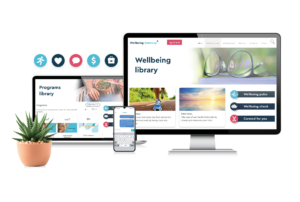In today’s interconnected world, diversity is the foundation of our communities, workplaces, and social circles.
Embracing diversity and promoting inclusion are not just the latest buzzwords – they are essential steps towards creating a more welcoming, equitable, and harmonious society.
Why do we need diversity?
Diversity encompasses a wide range of differences, including race, ethnicity, gender, sexual orientation, age, religion, disability, and socioeconomic status.
It is what makes us all unique and interesting individuals.
Embracing diversity and the varied life experiences of our communities results in increased innovation and creativity, a broader understanding and empathy for different life experiences, more informed decision making through considering a broader range of viewpoints and stronger communities.
Most importantly, embracing diversity means the true tapestry of our society is reflected, promoting equal opportunities and social justice.
How can I be more inclusive?
Inclusion is how we create a sense of belonging for everyone – making each individual feel valued, respected and welcome for who they are.
Creating a truly inclusive environment requires conscious effort and a commitment to understanding and respecting differences.
Inclusion is not just the responsibility of our employers and the companies around us, we all have a social responsibility to be inclusive.
So, here are some practical ways you can be more inclusive in your day-to-day life.
1. Challenge your own assumptions
Be mindful of your biases and preconceptions, and actively seek to learn about different
perspectives.
2. Avoid language that perpetuates stereotypes or excludes certain groups
Examples:
- Use gender neutral terms (e.g. ‘salesperson’ rather than ‘salesman/woman’, ‘hi everyone’ instead of ‘hey guys’).
- Don’t trivialise mental health conditions (e.g. OCD is a real mental health condition, not simply someone who likes things to be neat and tidy).
- Avoid generalisations and assumptions – only mention characteristics like ethnicity, gender, sexual orientation or religion when it is relevant to the conversation.
- If in doubt, ask!
3. Tune in
Listen attentively to others, showing empathy and understanding. Remember it’s okay for other people to have opposing views – you don’t need to agree, but you do need to be respectful of each other.
4. Celebrate differences
Embrace and appreciate the unique contributions that each individual brings to the table – the diversity of thought and experience is what makes us all interesting.
5. Speak up
If you see or hear discriminatory behaviour, promote a culture of respect and equality by speaking up and/or reporting the behaviour.
6. Get educated
Continuously seek out information and resources to deepen your understanding of diversity and inclusion.
7. Be an ally
Advocate for marginalised groups and use your privilege to amplify their voices.
Need more guidance?
For specific and personalised help, speak to our professional team by calling 1800 808 374 or by requesting an appointment online.
Looking for more resources?
Register for Wellbeing Gateway. Your personalised mental health and wellbeing companion.

